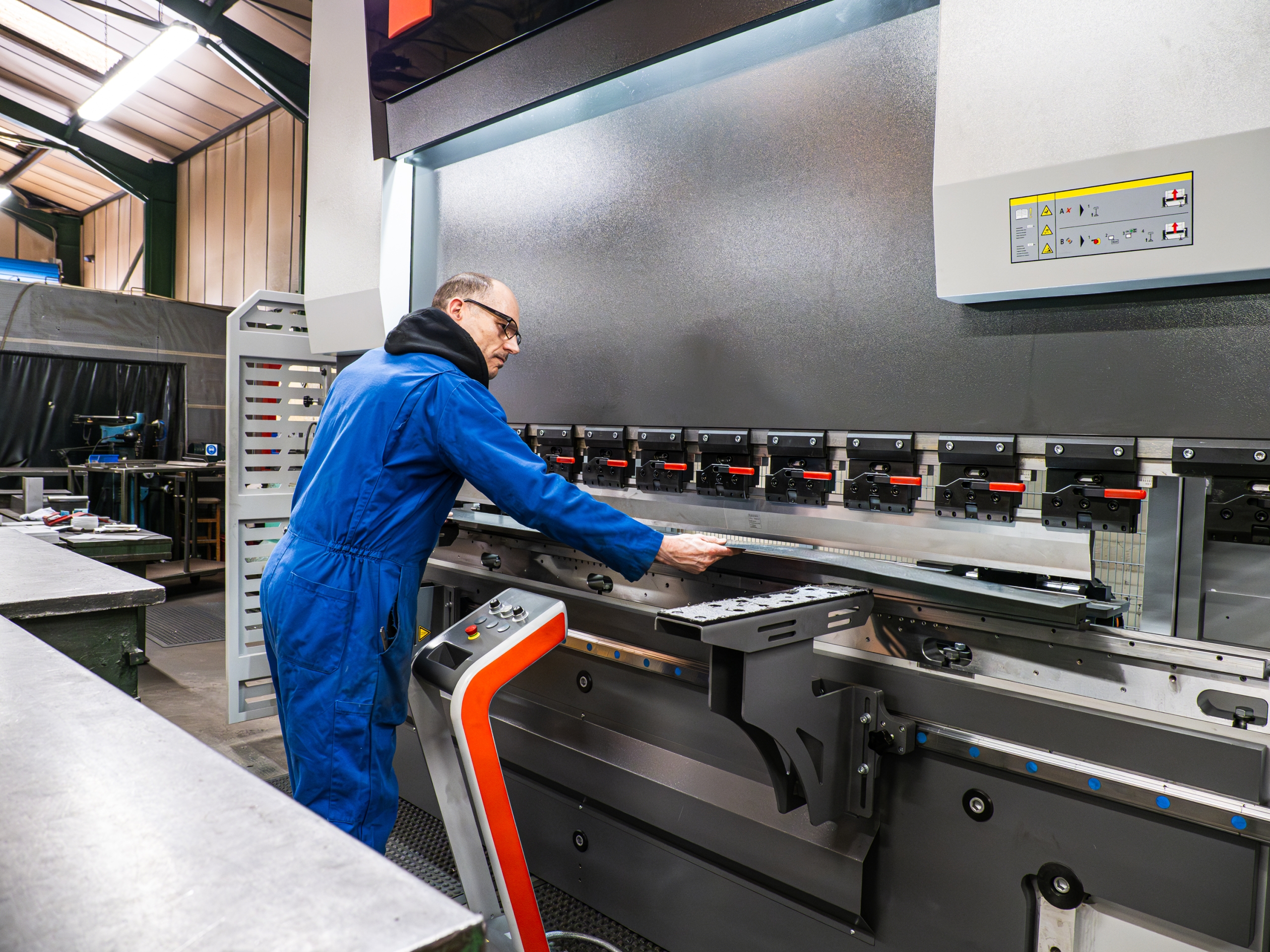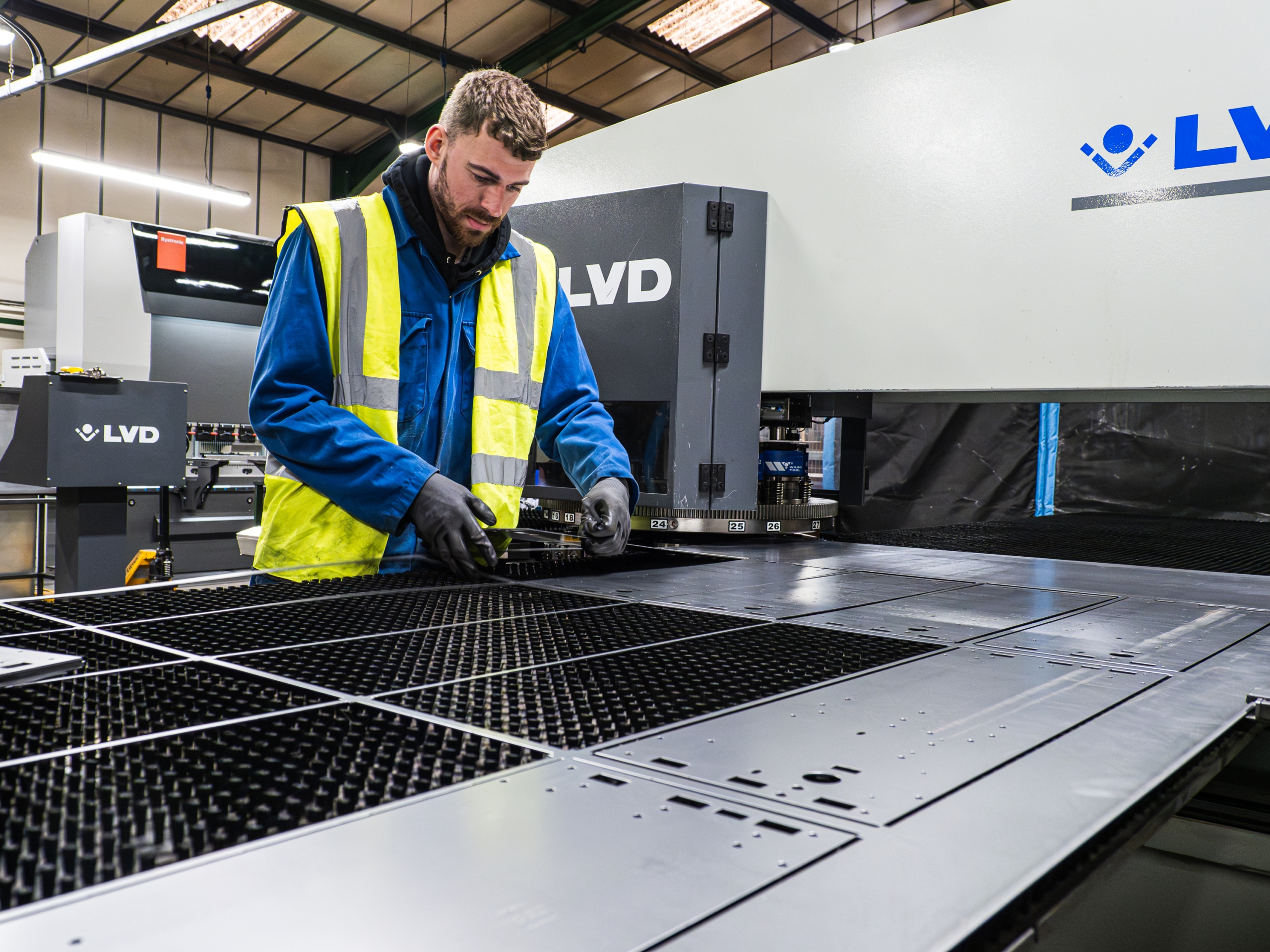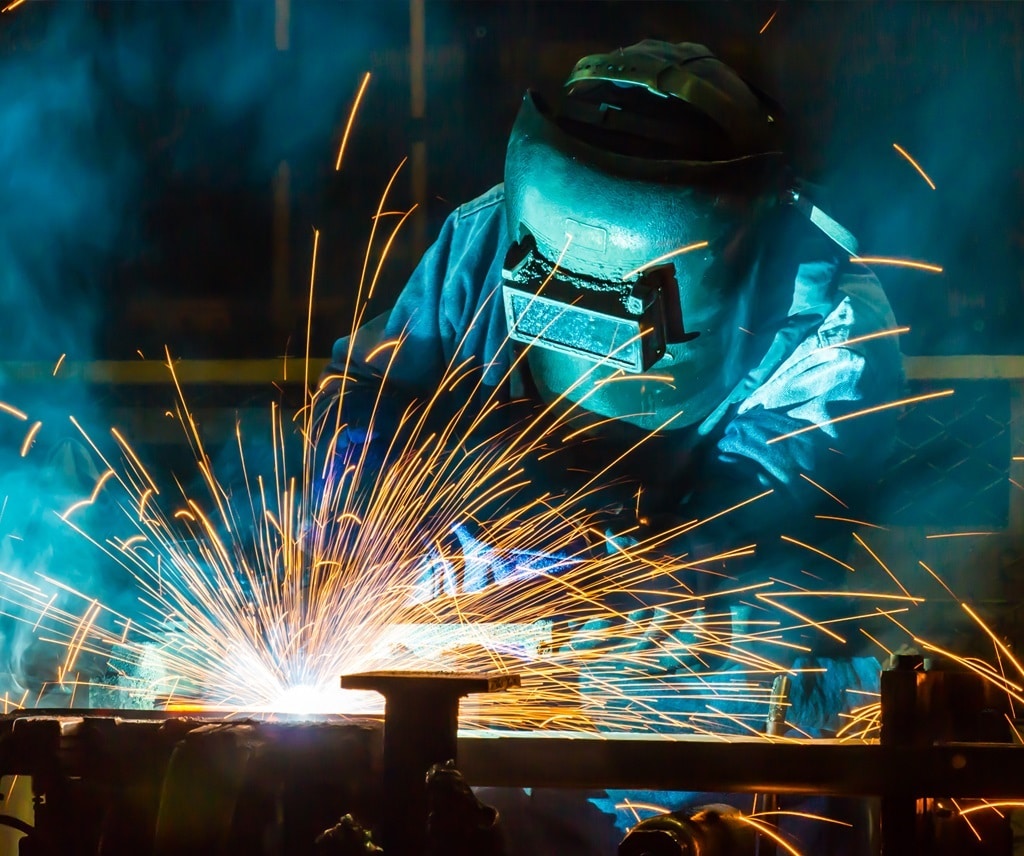UK Manufacturing in 2025
Why local businesses hold the key to recovery
The UK’s manufacturing sector is showing early signs of uplift in 2025 but recent challenges highlight just how crucial local fabrication businesses are to future resilience and success.
Government support for UK steel & manufacturing
In June 2025, new industrial strategy measures positioned British steel production as a matter of national security, ensuring that public infrastructure contracts prioritise domestic suppliers. Energy-intensive industries can also expect significant relief, including up to 25% cuts in green levies from 2027 a direct response to the historically high energy costs burdening UK manufacturers.
These policy shifts signal a long-overdue recognition: homegrown fabrication and manufacturing are critical to national and economic security.
Facing persistent challenges
Despite policy wins, UK manufacturers still contend with:
- Energy costs nearly double those in Germany and France
- Contracting domestic orders, despite export resilience
- A persistent skills gap affecting production and innovation
While output rose 0.7% in Q1 2025, energy and labour costs remain stubborn barriers to growth. Local support becomes even more crucial under these pressures.
The role of local fabricators
Local fabrication businesses, especially in industrial hubs like Coventry and the Midlands are uniquely positioned to tackle these challenges:
- Agility + capacity
When national supply chains stall, local partners can provide faster service, flexible batch production, and urgent weld or sheet metal work without the delays of imports or offshoring. - Cost & environmental efficiency
Reduced transport lowers both costs and emissions. And with local energy rebate schemes, short supply lines become even more economical and sustainable. - Skills and expertise
Family-run fabricators like MPL bring decades of hands-on expertise, from CNC sheet metal work to coded welding which helps preserve skills, drive innovation, and nurture future talent through apprenticeship programmes.
Built-in resilience at MPL Fabrications
At MPL Fabrications, we’ve witnessed these dynamics firsthand:
- Surging demand for overflow capacity in batch bracket runs, metal assemblies, and lift safety kits
- Heavy investment in CNC machines, coded welders (BS EN ISO & ASME IX), and on-site EV chargers, energy-efficient heating, and secure storage
- Helping regional manufacturers meet deadlines and quality standards quickly and cost-effectively
What this means for you
If your business is facing high energy prices, capacity bottlenecks, or supply chain uncertainty, local manufacturing partnerships offer a lifeline:
- Speed: Rapid prioritisation and faster delivery
- Resilience: Reduced risk from transport delays and tariffs
- Sustainability: Lower carbon footprint and greater eligibility for green incentives
Final takeaway
2025 is a turning point for UK manufacturing. Government support for domestic steel and energy relief goes hand-in-hand with the authenticity and agility of local fabrication partners.
This is our moment to build a more resilient, efficient, and sustainable industrial base starting with the people and teams in our neighbourhood workshops.
What are your experiences with local manufacturing partners? How can businesses collaborate better in 2025? Let’s start a conversation.


If you have any questions about our specialist welding services or want to discuss a specific project then please contact us on 024 7661 0778, or via email at sales@mplfabrications.com. Our expert engineers are ready and waiting to explain exactly how we could deliver the sheet metal components you need.
Pros & Cons
Pros:
Cons:
Variety of Processes to choose from:
There are many different processes that can be used to create a metal prototype, including CNC Machining, CNC Punching, Press Braking, Laser Cutting and more. Each process has different uses and can be implemented to create very accurate prototypes. For example, a CNC Machine can run the same job a few times with minimal changes from the initial product, allowing for consistent and quality production.
Requires skilled workers:
In order to carry out a solid prototyping process you will need in-house skills and capabilities. This doesn’t just extend to the workforce and departments needed, but also the equipment and the maintenance of that equipment, which could include Laser Cutters, 3D Printing, CNC Machining and much more. If you do not have these capabilities in-house it may be worth contacting a fabricator to outsource the work to.
Cheaper Alternatives:
If you’re working with a tight budget there are always cheaper options when it comes to materials and processes involved in prototyping. Aluminium is more commonly used in CNC prototyping due to being economically viable, lighter and easier to fabricate.
3D Printing can be expensive:
3D printing is suitable for prototypes that are purely for display; not having any moving parts, mechanical purpose or practical use. Results can be achieved quite quickly, although the options for materials are more limited if you’re on a tight budget, particularly when it comes to 3D Printing with metals.
Accurate visual and material representation:
CNC machining can be used to create prototypes that are visually similar to the final part. Machining centres and fabricators can make end-use parts as well as prototypes, so you can create prototypes that have similar functionality to the final product in some basic core aspects.
Not an accurate functional product representation:
There is a risk that your prototype might not accurately represent your product in terms of functionality. Some of the processes involved can only produce prototypes at a limited size, or in certain materials, so there’s a possibility that there will be some design flaws in the process. This is a rare problem, however.
MPL Fabrication’s prototyping capabilities

A precision-engineered prototype is often the most important part of a larger project. MPL Fabrications understand how precise a prototype has to be. With years of experience in sheet metal fabrication, they can advise on what is needed to take a concept to reality.
In-house work means that every stage of manufacturing a prototype is seamlessly integrated with every other stage, so the end result is delivered on budget and on time. Once the prototype is complete, the client can work with MPL Fabrications to refine it, correct any problems, and perfect the design. The same team works on a prototype from start to finish to ensure precision and consistent quality.
If you need complete prototyping services of any kind, then MPL Fabrications can discuss your requirements. Their years of experience and ability to be versatile means they can deliver a prototype with ease, for large scale industrial projects or small engineered solutions.
